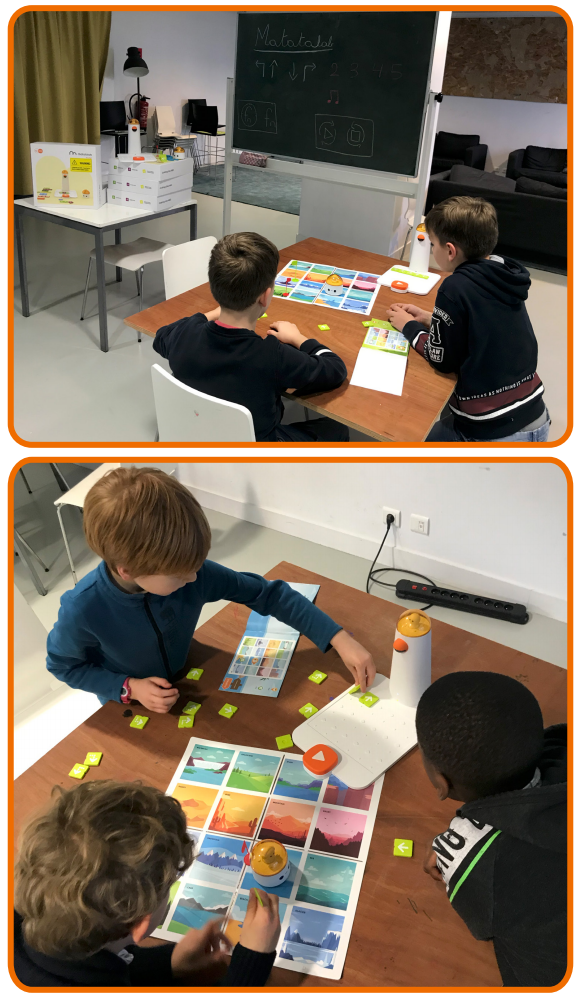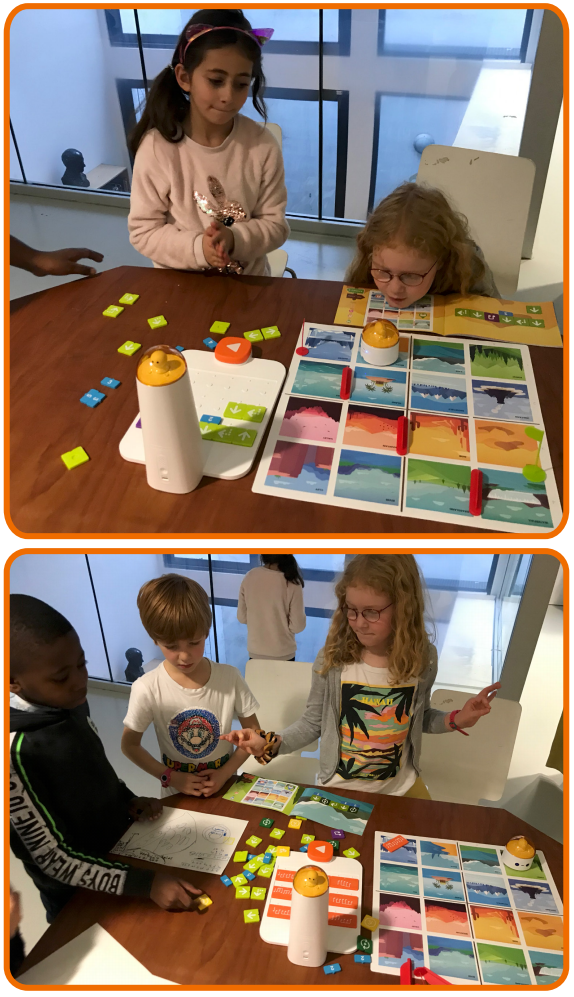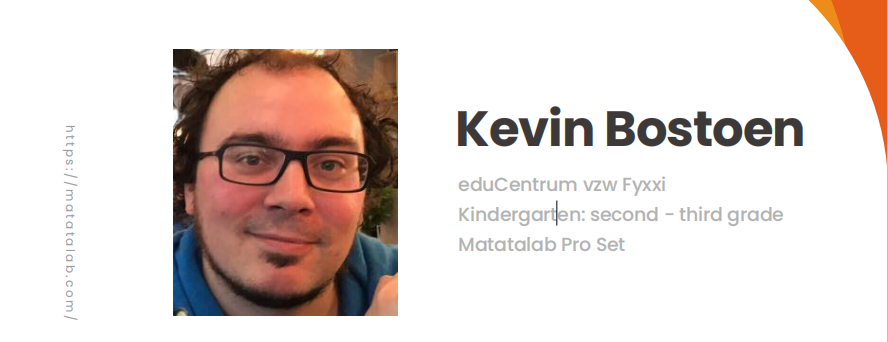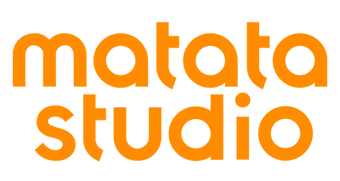
How many kids are in a group?
4
How was the Matatalab robot(s) used?
On Monday the 23rd of November we taught a workshop at “The Four Gardens”, a primary school in Oudenaarde, Belgium. The workshop took place in the afternoon, with children of the second and third year of kindergarten (4 - 5 years old). There were 22 children in total for three supervisors, which meant that each supervisor had seven to eight children in their group. Each group got to know a few different tools, among which Matatalab, which they went through on a rotation scheme. Thus, each group had about 20 minutes to get to know Matatalab. Since there were two sets available per group, the children got to work with Matata in small groups of 3 to 4 children. We did not use the supplied booklet, but used assignments in which the children were allowed to place the green and red flags on the map themselves. The children were already familiar with this way of working from earlier programming exercises in the classroom. The children gave each other an assignment per group, by placing the green and red flags one map. We soon realised that the transfer from the robot’s desired movement to the tiles on the panel seemed a bit too difficult. We therefore introduced an extra step, where the children first placed the tiles the robot had to perform on the map (e.g. if the robot had to go one step forward on the map, we placed the right tile on the map on that spot). The children were able to do this task easily. Then, we explained how to place the tiles onto the panel, starting with the first tile they had placed, then the second and so on. Of course, we were a bit limited in time to discover everything about Matata, but with a little more time, the children would have been able to follow the exercises from the booklet as well.
What skills did it develop?
Language acquisition.
Innovative thinking.
Attention to detail.
Patience.
Communication.
What worked best and what was challenging?
We had a limited time to test everything, but the kids really liked this way of working and how matata did everything.

Share your comments upon the class using Matatalab
Each of the two kindergarten teachers of the class were also able to work with Matata for 20 minutes with their group. They had the following findings about Matata:
- They thought it was a pity that there were a limited amount of moving tiles (forward, backward, left and right) in the box. Because the children placed the tiles on the mat first, we sometimes had too few forward tiles. Once the children understood this process, they could make the transfer to using the number blocks.
- The lighthouse and the car certainly appealed to the children's imagination.
- The booklets are definitely an added value. After the children had become acquainted with Matata, the teachers were convinced that the children could solve these assignments in their group.
- The additional music and drawing tiles are nice extras for older children, but drawing in particular proved a bit too difficult for this class.
Any others you would like to share
When I think back to the workshop, the children really liked how matatalab was controlled from the lighthouse and moved over the map. The puppet in the cart and the lighthouse was also a wow-efffect for them. The teachers found it a pleasant tool to get to know.



